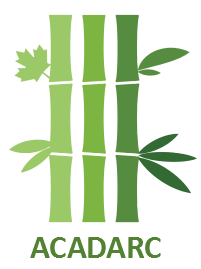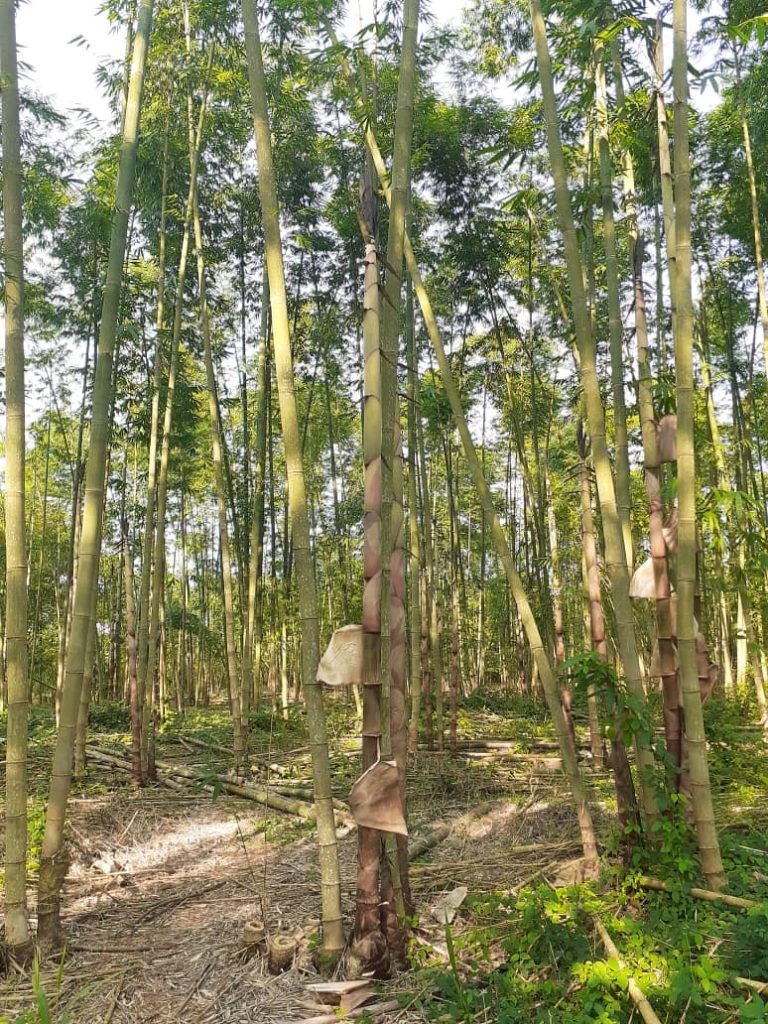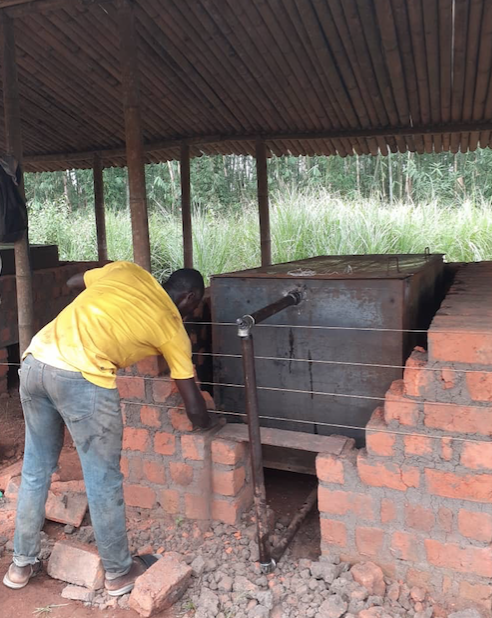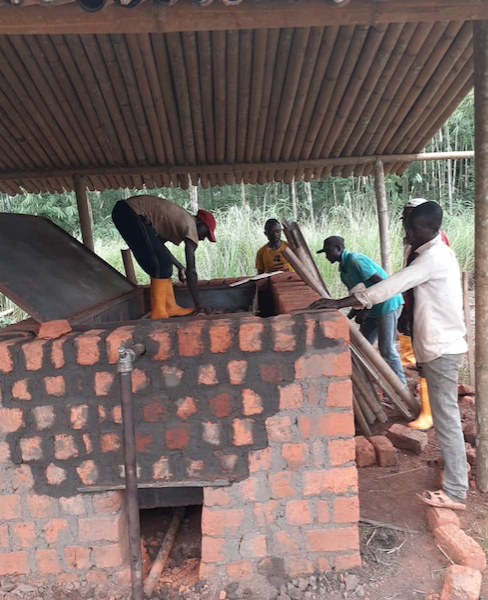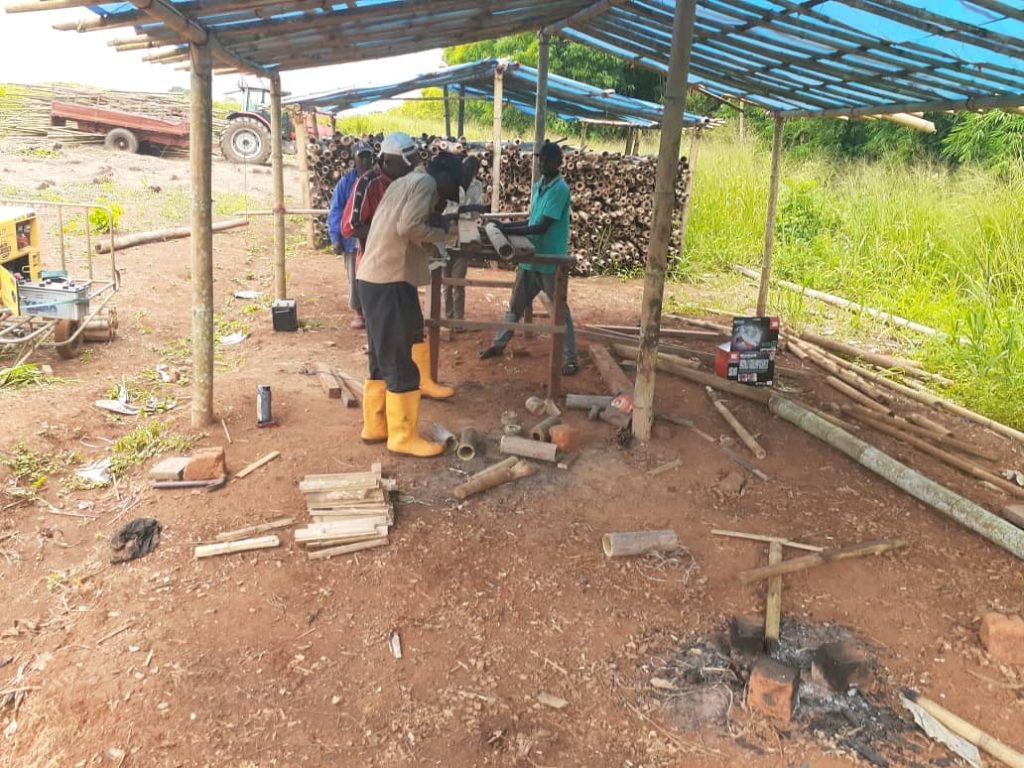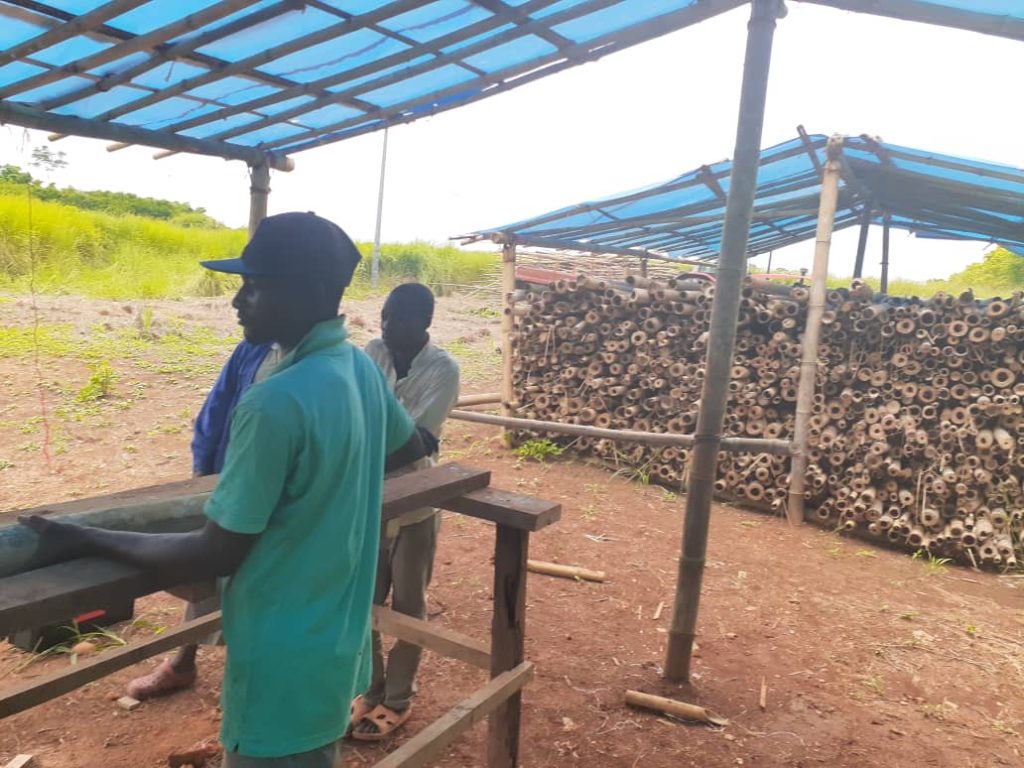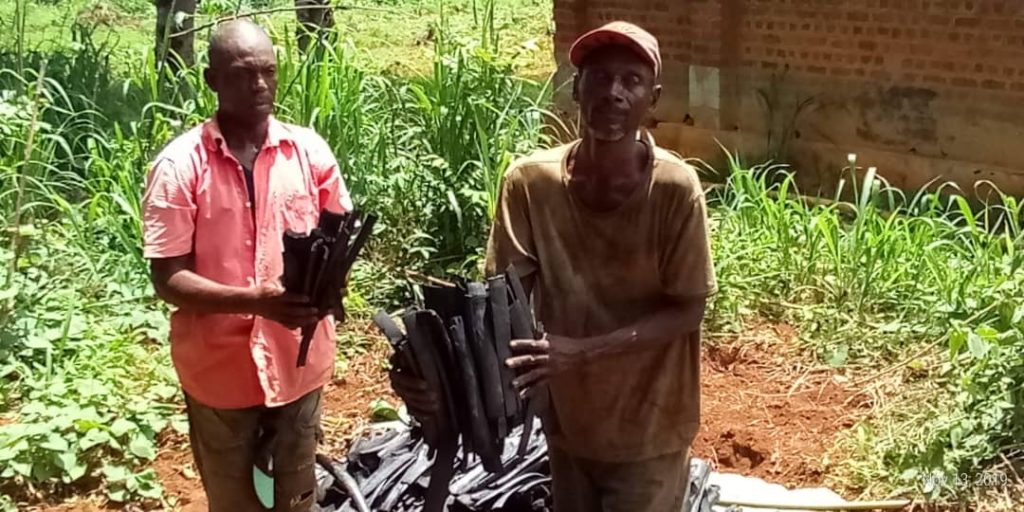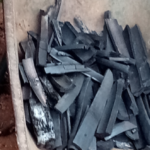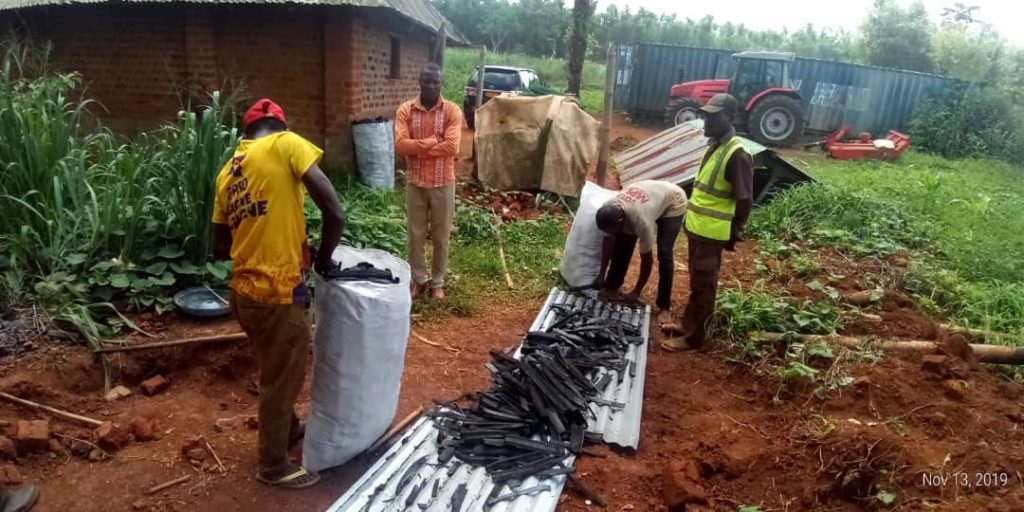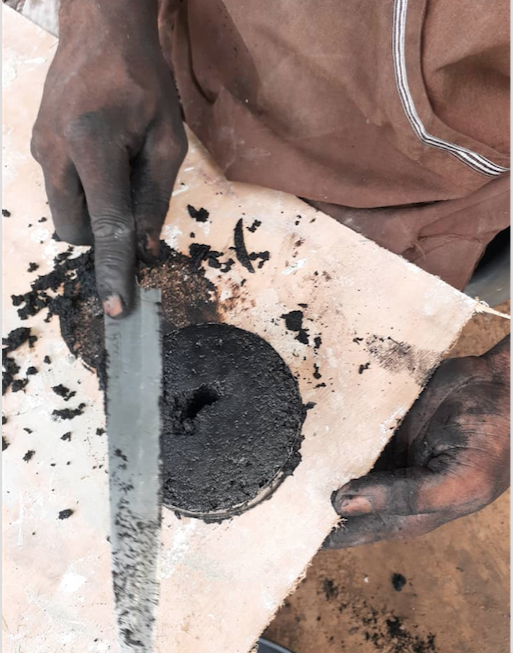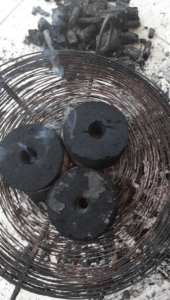Support for Local Producers
Ngimbi Project
With the help of the local partner team of Orim Agro Industries, ACADARC supports the local production of charcoal from ecologically sustainable bamboo. This experimental project involved trials using specially built ovens that were adapted during several test iterations to adjust the cutting process, methods for filling the ovens, heating, unloading the ovens and bagging the charcoal. The objective is to optimize the process and train master carbonizers so that this knowledge can then be used to train members of rural communities who can plant, harvest and transform bamboo into charcoal.
SPECIFIC OBJECTIVES OF THE PROJECT
The specific objectives of the project are environmental, climatic and social-economic:
• in terms of the environment, the planting of bamboo groves for charcoal production will reduce the use of the forests surrounding urban centers, thus contributing to the conservation of biodiversity and to the reduction of the rate of deforestation;
• in terms of climate, the project will reduce greenhouse gas emissions through two mechanisms: (1) increasing the rate of carbon capture by increasing the bamboo cover and (2) reducing deforestation and thus preserving existing forest cover;
• in social terms, the project will provide a steady income to women and their families who previously depended on logging to produce charcoal. This project could divert them from this harmful practice by providing a sustainable and profitable mechanism for charcoal production.
Photos of the progression of the project
The following photos describe the progress of the pilot project in recent years.
In July 2017, a preliminary study of the Ngimbi project was carried out. This initial study made it possible to visit the premises, identify partners and present the initial scope of the potential of the project and its stages.
It was at this time that the initiative to build and experiment with the ovens locally took shape. The decision not to import the technology is at the heart of the project plan. To speed up implementation, a visit to the growing Ngimbi plantation took place.
The promotion of the project was then presented in Montreal and the needs for support were identified to start the construction of the first experimental oven.
Bamboo is a fast growing plant: a tree can grow about 2 meters in 2 years while bamboo grows 10 times as quickly, 20 meters in 2 years. The Dendrocalamus Giganteus planted in Ngimbi generally reaches its maturity in 24 months, while a tree needs closer to ten years to reach its full growth. Bamboo grows well in degraded soil and regenerates (i.e., expands horizontally) through its underground network of roots (i.e., rhizome) without the need for replanting.
This is a photo taken at the Ngimbi plantation in 2019. The bamboo plantation was surveyed, the maturity levels of the plants were noted and the cutting and replanting strategy was launched.
Experiments with several designs for the ovens took place. The high temperature results were not always up to standard and did not carbonize the bamboo well. These images show the eighth oven (2019 model) that was built and tested. Its design insulates the oven with outer brickwork and loading is done from the top. In our next design, we will try to create a two-side loading panel to facilitate loading and unloading tasks.
Briquettes are fashioned from bamboo charcoal dust mixed with clay and cassava flour. These briquettes light more easily than charcoal made from wood, as the bamboo carbonization procedure is more efficient. In addition, according to our tests, cooking is faster, since the heat given off is more intense and less harmful than charcoal made from wood.
This is the regrowth of a bamboo tree cut in October 2019. The photo was taken in March 2020. A well-organized and selective cutting of bamboo trees would ensure the continued production of ecological charcoal.
The Ngimbi pilot project is very promising and demonstrates its feasibility. Thank you to all the employees of Orim Agro Industries and the fitters/mechanics of Kinshasa for the great success to date.
